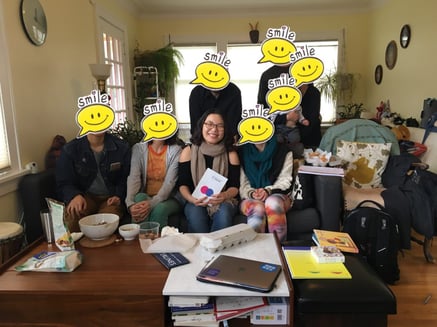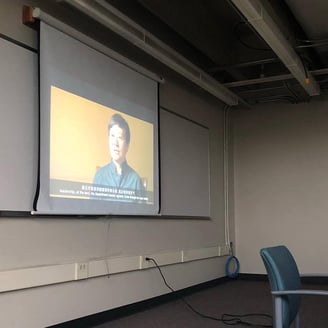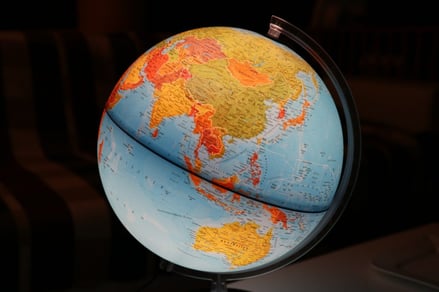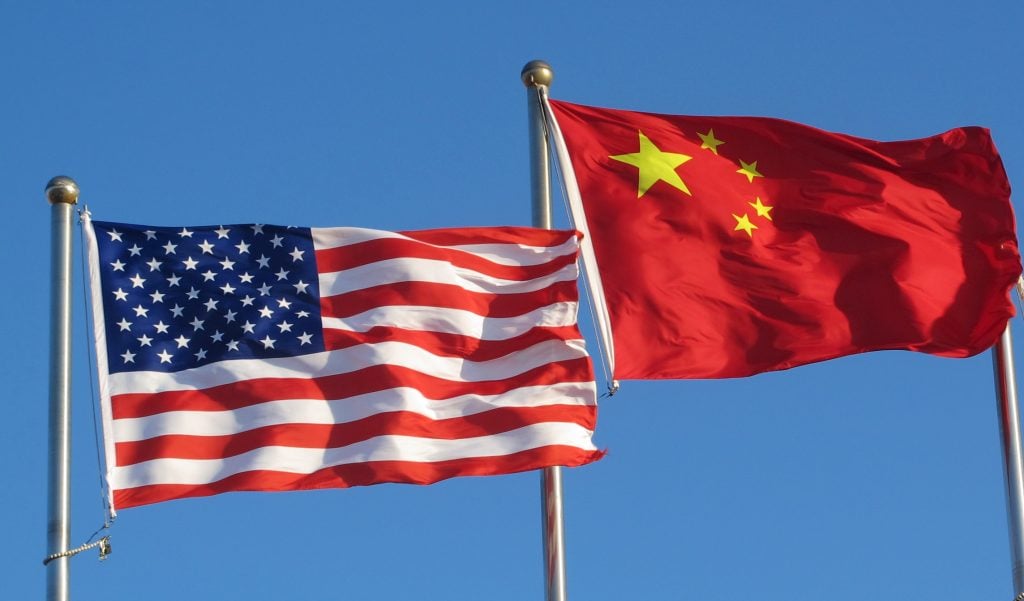As an International student coming from mainland China, the experiences of being a Point Scholar, a PhD student, and a teacher here in the US allow me to develop unique perspectives of thinking intersectionally across cultures.
I began doing feminist and tongzhi (Chinese appropriation of the revolutionary term “comrade” to refer to persons with same-sex desire) activism six years ago when I was a college student in China. Transnational LGBT activism has had a deep influence on the Chinese soil since the 1995 Beijing Women’s Conference, and there have been many debates on identity politics and forms of activism within the Chinese tongzhi community. I have always been very interested in understanding ideologies of feminism, LGBT issues, and queer activism from different parts of the world, and how activists negotiate and utilize these ideologies on different scales.
I have recently organized a community talk with a Chinese diaspora grassroots organization here in Seattle. They are very interested to know more about Chinese feminist and tongzhi activism, and to explore these nuances in order to really build international solidarity. I have also given a lecture to undergraduate students at the University of Washington in a class titled “Race, Gender and Social Stratification.” Through these types of experiences, I have created a method for how I talk about intersectionality in a transnational context.

Kevin Hummer Point Scholar Yingyi Wang leads a community talk on Chinese feminist and queer activism
I start with a documentary entitled “We Are Here” by Chinese feminist and queer activists Sam Jing Zhao and Shitou. It is a documentary about the intersection of feminism and lesbianism and its debate in the 1995 Beijing Women’s Conference. By featuring lesbian voices at the NGO forum at the conference, the documentary reveals the difficult negotiation over issues of sexual orientation between women’s rights groups and the states, and tensions within feminist activist communities transnationally.
Students in my class raised interesting questions regarding this documentary. One scene in the documentary talked about how transgender visibility (transgender women in particular) was missing from the NGO forum, and one student argued that similar trans-exclusive tactics are still being adopted in some feminist communities here in the US. Students were also very interested to learn the genealogy of the Chinese vernacular “lala”, which refers to women who love women in mainland China, with influence from Taiwan. My intention of screening this documentary is to historicize transnational activism while also problematizing identity politics globally.

Screening the documentary "We Are Here"
I then share cases of Chinese grassroots tongzhi organizations and analyze how intersectionality played critical roles in forming these groups and the contention within activist communities. For instance, Chinese gay and lala organizations have experienced a fundamental rift in the last two decades because of their different strategies and resources. Backed by international funding for HIV/AIDS prevention, gay organizations first thrived in mainland China. However, not much attention or resources were given to lala’s needs. Another interesting triggers of contention were due to these organization’s different approaches; gay men tend to adopt a more or less essentialist understanding of sexuality, while lalas advocate a more queer and fluid definition of sexuality. These different understandings could be attributed to the different class and educational backgrounds of the gay men and lala activists. Many leading lala activists graduated from overseas and elitist educational backgrounds, while gay activists were more of working class backgrounds. Other markers of difference include ability, bisexuality, transgender activism, and rural and urban environments.
It seems that Chinese tongzhi politics and activism have taken very similar approaches to those in the global north countries. My questions then are: What kind of experiences are erased? How can groups with different identities and strategies collaborate instead of fighting against each other for resources coming from the north?

It is important for activists in the global north and global south to come together and discuss strategies and tactics. The geopolitics of activist funding from the North to the South has critically shaped how activism takes place in different nation-states and regions. This example of China shows not only the significance of intersectionality in transnational contexts, but also questions the fundamental utility of such intersectional identity politics, that is based on an unequal distribution of wealth in the northern countries and their influence on southern countries’ activist strategies.
My constant reflection on this debate comes from my pursuit of truly decolonizing activist strategies, which can interrogate and challenge power, as well as generate liberating politics strategies for those who are implicated in the lower end of power structure transnationally.

This post was written by Kevin Hummer Point Scholar Yingyi Wang.
Yingyi received her master’s degree from the University of Hong Kong with her pioneering research on cooperative marriage between gay men and lalas in mainland China. Her doctoral research at the University of Washington looks at the precarity of NGO workers, including LGBTQ activists, in neoliberal China. Read more about Yingyi here.

